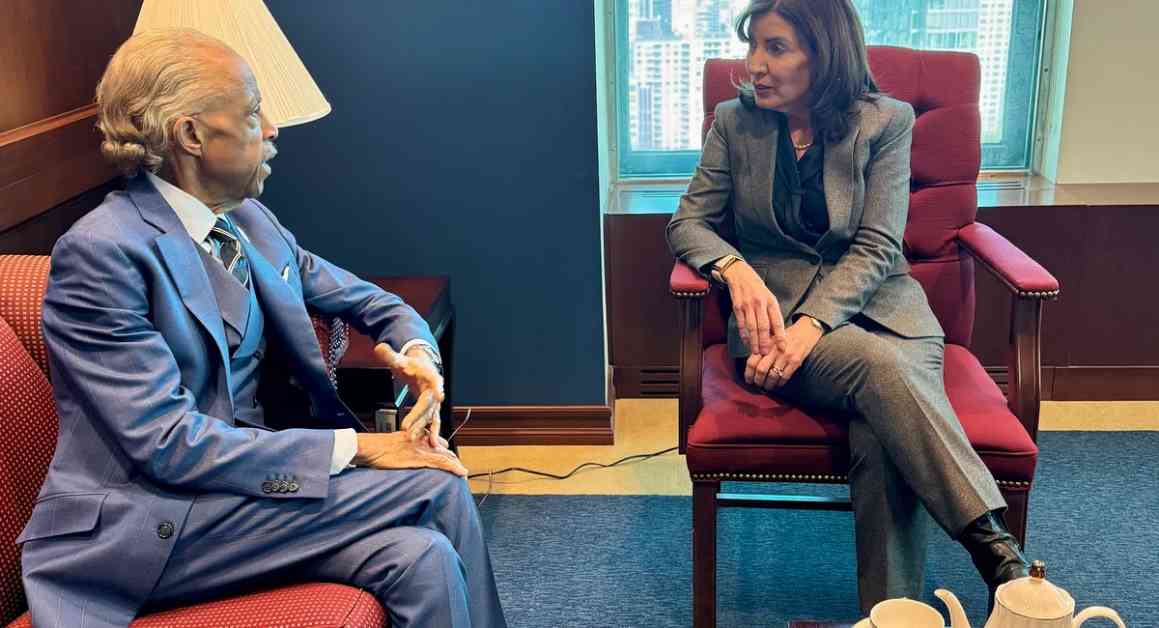As Governor Kathy Hochul grappled with the future of New York City Mayor Eric Adams in a series of pivotal meetings, the spotlight intensified on the embattled mayor amid escalating calls for his resignation. Hochul, vested with the authority to oust Adams from office, engaged in a series of private discussions with key political figures at her Midtown office on Tuesday to assess the sentiments surrounding Adams’ tenure.
The Democratic governor’s one-on-one meetings with influential New York City officials and leaders were strategically orchestrated against the backdrop of a growing exodus of staff from the mayor’s administration and lingering suspicions regarding potential quid pro quo deals with the Trump administration. Rev. Al Sharpton, a prominent figure in civil rights activism, emerged from his meeting with Hochul expressing concern about the city’s current state of affairs. He emphasized the need for resolution while advocating for upholding the law to prevent setting detrimental precedents.
In the wake of these closed-door deliberations, Queens Borough President Donovan Richards and Council Speaker Adrienne Adams joined the ranks of officials engaging with the governor, echoing the growing chorus of voices urging Mayor Adams to contemplate the viability of his leadership. Elected representatives, including members of Congress and the City Council, have unequivocally called for Adams’ resignation, underscoring the gravity of the situation.
However, Mayor Adams remains steadfast in his refusal to step down, vehemently denying any unethical dealings with the previous administration. In a tense exchange with reporters, Adams dismissed queries about his impending fate, dismissing them as falsehoods. The palpable tension surrounding the mayor’s tenure spilled onto the streets, with demonstrators rallying outside Hochul’s office clamoring for Adams’ removal.
Amidst the escalating calls for action, Governor Hochul faces the weighty decision of potentially removing an elected mayor, a responsibility not to be taken lightly. Democratic consultant Lupe Todd-Medina emphasized the importance of introspection in arriving at a definitive course of action, stressing the need for Hochul to navigate this complex terrain with unwavering authenticity.
As the saga unfolds, the business community, represented by Kathryn Wylde, expressed confidence in Hochul’s ability to navigate the tumultuous situation with poise and professionalism. Wylde lauded the governor’s leadership, underscoring the necessity of ensuring seamless governance for the city to function effectively.
However, the specter of political maneuvering looms large, with Republicans and conservatives decrying Hochul’s potential intervention in removing Mayor Adams. The debate intensifies as City Comptroller Brad Lander, a mayoral candidate himself, steps into the fray, pressing for clarity on the city’s governance amidst the prevailing uncertainty.
As the fate of Mayor Adams hangs in the balance, the intricate dance of political power and public opinion converges in a high-stakes showdown. Against a backdrop of mounting pressure and polarizing rhetoric, the resilient spirit of New York City endures, poised for the next chapter in its storied history.












